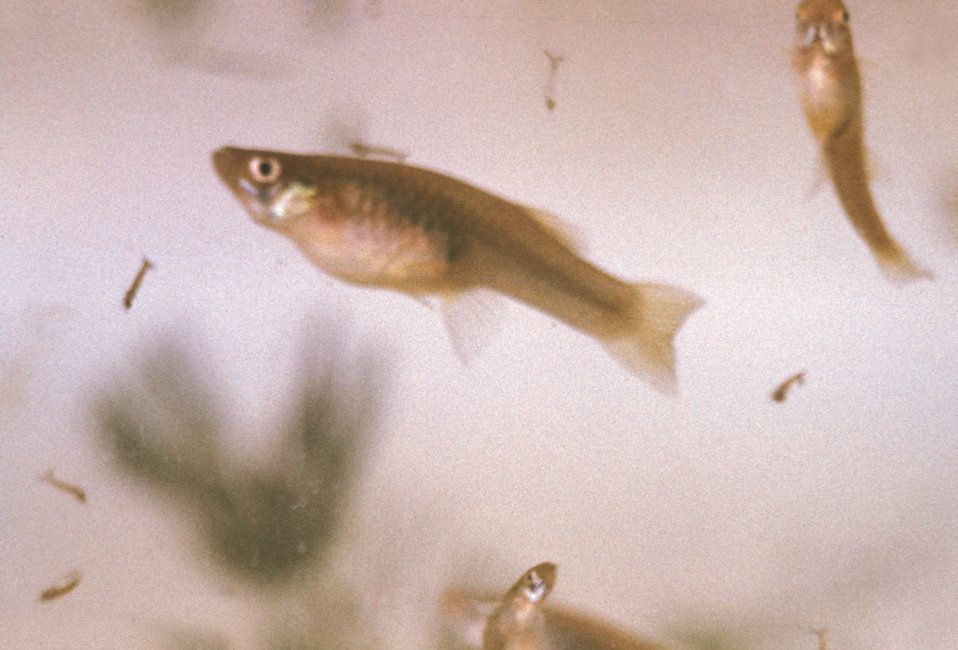When we think of living organisms that are sex-crazed, humans and dolphins are typically the first ones that come to mind.
Although we know intercourse is essential for reproduction in all life forms, some do it out of necessity while others simply do it for fun.
It's rare to think of the intimate escapades of people other than ourselves, let alone another species, but researchers at Monash University in Melbourne, Australia have discovered fish have become increasingly sexually aroused after they put a significant amount of antidepressants in an aquarium.
The Experiment
Scientist Michael Bertram put male mosquitofish under the influence of both high and low quantities fluoxetine, the active ingredient in Prozac and found that the fish with the higher doses of antidepressants showed "more frequent copulatory behaviour" and spent more time pursuing their female counterparts.
"In one-on-one mating trials, males in the high-fluoxetine treatment performed more frequent copulatory behavior towards females than did males in the unexposed treatment," he wrote in Science Trends.
Bertram explained that fluoxetine finds its way into our ecosystem because the water treatment systems cannot filter it out, or any other pharmaceutical drugs that enter the area.
"A significant positive correlation was detected in control fish between activity levels in the maze and time spent pursuing females in the reproductive assay," he said, adding that the administration of the drug can influence behavior in animals, just like it can with humans.
"Fluoxetine can cause a wide range of adverse effects in aquatic species, including disrupting development and reproduction and altering morphological and physiological traits."
But this isn't the first time scientists have found drugs have influenced an a fish's behavior.
What does Metformin do?
In 2014, Dr. Rebecca Klaper from the University of Wisconsin-Milwaukee discovered metformin, a medication commonly taken for Type II diabetes had made its way into the waterways, causing male fish to become intersex and smaller in size.
"It has been suggested that the prevalence of intersex fish in certain watersheds may be the result of... a cocktail of potential and known endocrine disruptors," a piece of research for the Society of Environmental Toxicology and Chemistry read.
In the past, scientists have studied the effect of hormones from birth control pills had on male fish, but were surprised since metformin isn't a hormone but is instead a drug targets blood sugar regulation.
But although it's not a hormone, Klaper explained metformin is also a drug that is prescribed to those with polycystic ovary syndrome, which sees elevated male hormones in females.
Who knew fish could be drugs could have such a massive influence over fish?
[H/T: Mirror, UWM Report]






